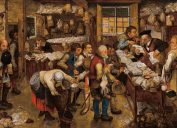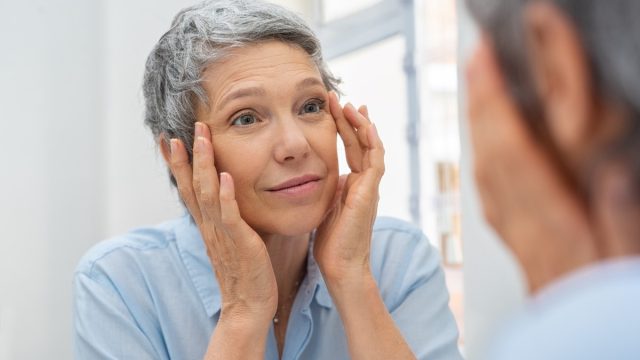
There is no way to stop the process of aging — however, you might be able to slow it down. According to Dr. Carl Giordano, Chief Science Officer and Co-Founder of Rebesana, there are 15 signs of aging to look out for, most of which can be turned around. “All of these can have significant health consequences beyond just aging. It is important to recognize these because a lot of these are modifiable. The sooner you realize this, the more impact you can have on your lifespan and health span,” he tells Newsful, revealing precisely what to look out for and offering five easy ways to turn them around.
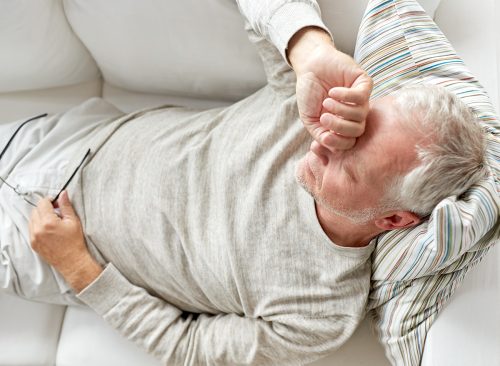
If you find yourself chronically tired and with little to no energy, you should be concerned. “Fatigue and decreased energy are not only indicative of health concerns but also indicative of aging,” says Dr. Giordano. “These symptoms indicate that you are not maintaining your physical status with a good daily exercise program or your metabolic processes that maintain your energy level are struggling.” He notes that there are ways you can improve this: Participate more regularly in an exercise program that deals with aerobic conditioning, strength training, balance, function, and stretching, reevaluate your diet, and maintain cellular metabolic pathways through signal molecules. “The symptoms also indicate that you should check your metabolic and physiologic functions with bloodwork,” he says.

Memory and cognitive decline are signs of aging. “Many people notice this but ignore this sign, but it is a real indication that your brain is aging,” says Dr. Giordano. He suggests a plant-based diet and fasting, which promote and support a healthy brain and reduce the risk of cognitive decline. “Exercise, sufficient sleep, heart health, cholesterol levels, and mental stimulation have also decreased the risk of cognitive decline. Substance abuse, whether alcohol consumption, smoking, or drug abuse, is essential to minimize memory and cognitive decline,” he says.

Skin changes naturally occur as we age and are a window into how various tissues in our body that are not easily visualized are also aging, says Dr. Giordano. “Although different tissues age at different rates, skin changes are certainly most easily visualized.” In our mid to late 20s, we first see changes in our hair and skin, “but the same aging process occurs in all body tissues,” he points out. What can you do about it? Protect your skin from the UV radiation from the sun with sunscreen. Protect your hair and face with hats. Stay hydrated, maintain a healthy diet, avoid smoking and alcohol, exercise regularly, limit sugar intake, and use exfoliants to remove dead skin cells, promoting cell turnover and a more useful complexion, he suggests.
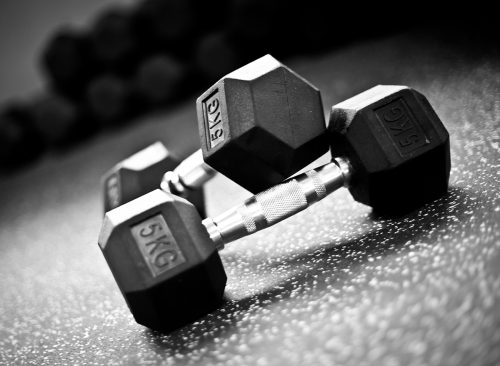
Loss of muscle mass and strength is a sign of aging or nutritional deficiencies. “These are definite signs that you are not maintaining your muscular system. Although a natural deterioration occurs with muscle mass and strength, the earlier this is recognized, the earlier you can combat this loss by engaging in a strength training exercise program,” Dr. Giordano says.
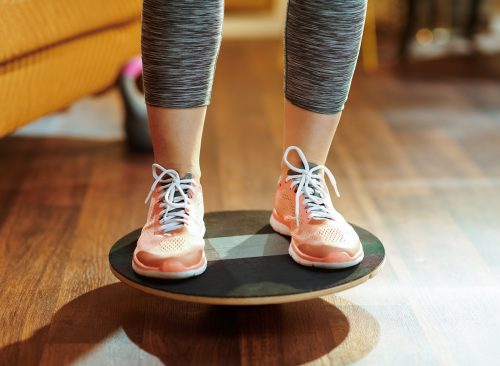
Balance and coordination problems are signs of neurologic deterioration, muscle weakness, or inner ear issues. “All of these should be recognized early to decelerate this process, which can be done with balance exercises and strengthening programs. Obviously, if there are origins of these conditions, they can be dealt with appropriately,” says Dr. Giordano.
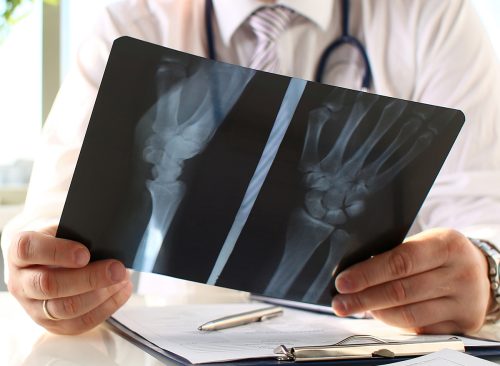
Fractures from minor trauma usually indicate that the skeletal system is aging, says Dr. Giordano. “Ideally, this is going to be identified before fractures occur.” A bone density test is valuable and recommended for all women over 65 and all men over 70. “Both groups should get a bone density test earlier if they are at risk. One-third of women over 50 and one-fifth of men over 50 will experience an osteoporotic-related fracture,” he adds. “Many pharmacologic options exist to help maintain your bone strength and integrity. Astonishingly, 9 million osteoporotic compression fractures occur every year worldwide. Modifiable risk factors include smoking, limited exercise, alcohol intake, estrogen deficiency, and calcium and vitamin D deficiency.”
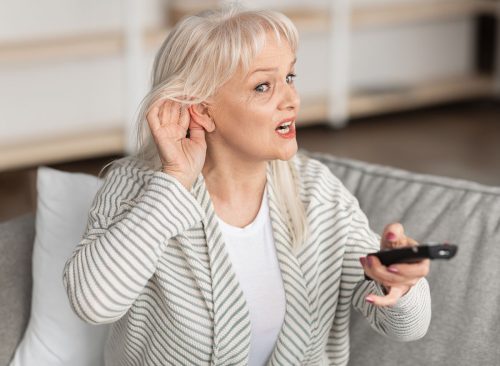
Hearing loss may have some genetic predispositions, but hearing loss is generally a sign of aging from the delicate hair cells in the inner ear losing their identity. “Early atherosclerotic vessel disease can manifest by altering blood flow to the inner ear, contributing to hearing loss,” he explains. Hearing loss could be one of the early signs that you have hardening of the arteries and cardiovascular disease. “Treatment should not be as simplistic as providing a hearing aid, but evaluating cholesterol levels and vascular function is important.”
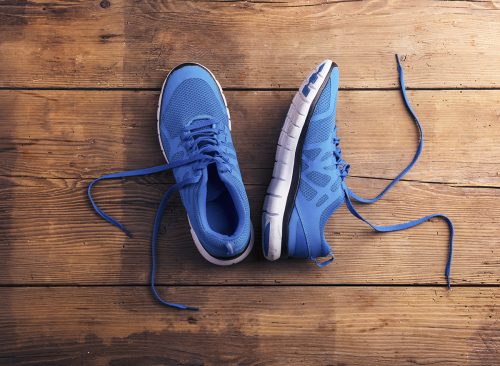
Deterioration in athletic performance indicates “physiological aging that combines muscle mass strength, cardiovascular capacity, flexibility and joint mobility, bone density loss, slower reaction time, and connective tissue changes,” says Dr. Giordano. “As soon as these are recognized as a sign of aging, you can combat this and reevaluate your exercise routine, diet, usage of signal molecules, smoking, and alcohol intake and make the modifiable changes.”

Sexual health changes indicate aging that may be from hormonal abnormalities, metabolic abnormalities, thinning of vaginal wall tissue layers, and vascular abnormalities. “Evaluating all these areas will not only provide treatment but will hopefully indicate to you that you may be prematurely aging by some modifiable lifestyle choices, such as smoking drugs and alcohol use, which will accelerate the loss of cellular identity in the entire aging process,” says Dr. Giordano.
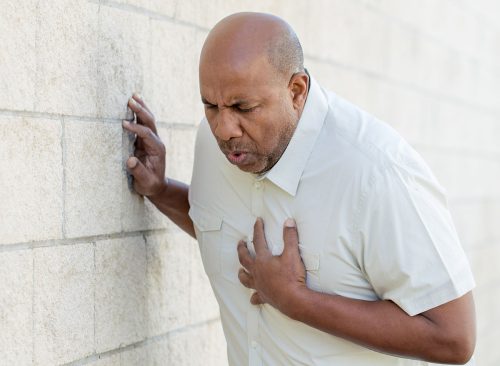
Aerobic conditioning is an excellent indicator of aging and overall health, explains Giordano. “Your VO2 max. is the maximum rate you can use oxygen. It is the volume of oxygen you use per kilogram per minute,” he said. Elite athletes have a VO2 max of 60. “This is an excellent test in many ways because it is not just a single number but a physiologic test that evaluates multiple physiological systems, including the lungs, heart, and the musculoskeletal system. If you get short of breath, this indicates that you are not in good shape or some other serious medical condition exists that needs further workup. If everything else checks out OK, this is an excellent indication that you need two to engage in a more rigorous aerobic exercise program daily.”
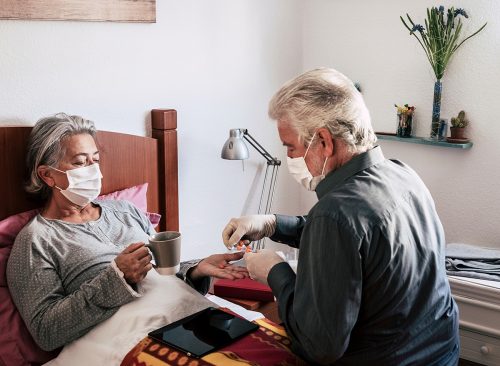
Frequent illnesses or infections could indicate that your immune system is weakening. “Although this occurs with aging, it may indicate other medical issues that need work-up evaluation and treatment,” says Dr. Giordano. No longer should people believe this is just something that happens. “This sign of aging most likely indicates that you’re aging accelerated. This should prompt you to reevaluate your diet and exercise routine in other modifiable lifestyle choices like smoking and alcohol usage, all of which can negatively impact your immune system,” he says.

Vision changes may be a sign of other health issues, but typically is a sign of aging. “The need for reading glasses, decreased contrast or color sensitivity, floaters or flashes, cataracts, dry eyes, decreased adaptation to light, and macular degeneration are all signs of aging,” he explains. “Loss of sight can be catastrophic, and regular comprehensive exams with a professional are important.” A well-balanced diet, rich in fruits, vegetables, whole grains, lean proteins, and healthy fats, and supplements with vitamins C, A, copper, zinc, omega-3 fatty acids, and antioxidants may help maintain eye health. Using sunglasses that provide UV radiation may also help protect the eyes and decrease your risk of cataracts. Limiting smoking, maintaining hydration, and regular exercise have also been shown to help maintain vision.
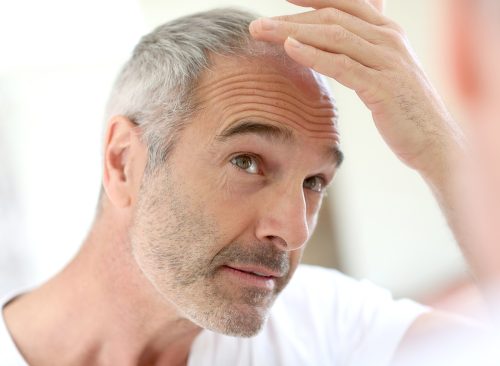
Hair loss is a common sign of aging and affects both genders. “Hair loss can be genetic, but other factors associated with hair loss are signs of aging,” he says. The medical term for hair loss is androgenic alopecia in men and female pattern hair loss in women. “Hormonal changes that may be modifiable can be a common source of aging.” He adds that more research is needed to establish concrete evidence but a contribution to overall hair health benefits from natural anti-inflammatories and antioxidants (omega-3 fatty acids green tea, vitamin C and E, beta-carotene, resveratrol, quercetin, berberine), biotin, and minerals like zinc and selenium. A balanced diet rich in vitamins, minerals, and proteins and various fruits and vegetables, lean proteins, whole grains, nuts, and seeds have also been shown to promote hair health.
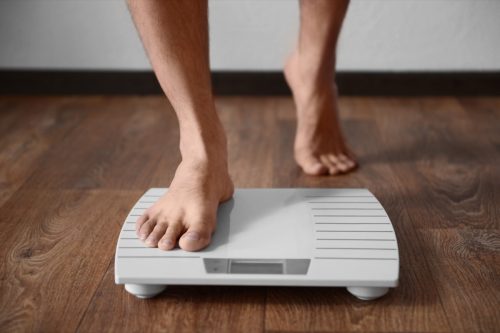
Unintentional weight changes are associated with aging. “Whether changes cause accelerated aging or weight changes occur from premature aging can be debated,” says Dr. Giordano. Unintended weight changes may also indicate serious, underlying health issues or changes in metabolism. “One of the most significant issues with unintended weight gain is visceral fat, which is associated with insulin sensitivity and chronic inflammation.” Visceral fat increases your risk of cardiovascular disease, metabolic syndrome, cancer, liver disease, and osteoporosis. “Those love handles you may consider cute or that little potbelly you think comes with age is an ominous warning sign. It should prompt you to undergo some bloodwork to evaluate your hemoglobin A1c level, whether or not you are prediabetic, and get into a much better exercise routine to lose that excess weight,” he notes. It may also be associated with excess alcohol consumption.

Deterioration in coordination is a common sign of aging. Various factors contribute to this decline in coordination and balance, affecting overall motor skills. “Proprioception is the body’s awareness of its position in space. When these functions deteriorate, it is a sign that your brain is starting to age. Ideally, you will do everything you can to delay this onset rather than wait for it to develop,” Dr. Giordano says. “Engaging in hand-eye coordination is valuable in delaying this onset, as are proprioception exercises, such as balancing on unstable surfaces, like a wobbleboard or single stance exercises. Maintaining overall brain health with proper diet, intermittent fasting, and recognizing modifiable lifestyle choices, such as minimizing alcohol and smoking.”
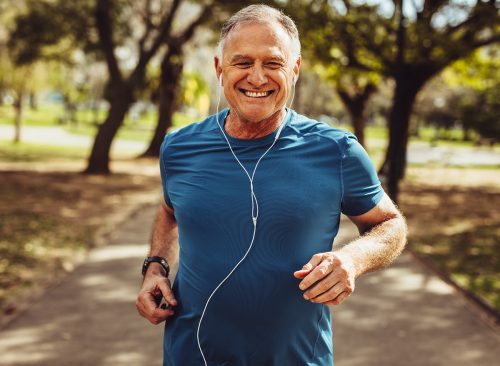
Dr. Giordano suggests you should do “everything you can to decelerate the aging process and its effects.” The first thing is engaging in a regular exercise program that checks off each box: strength, training, aerobic conditioning, balance exercises, and stretching.

He also suggests drifting towards a “largely plant-based diet and supplementing it with messenger molecules to provide powerful antioxidants and anti-inflammatory that circulate in our bodies all the time and help nudge our cellular mechanisms to maintain their cellular identity.”

“Nutritional biochemistry and mechanistic biology are changing how we understand and can delay aging,” says Giordano. “Yearly checkups with your doctor will help you identify what areas you need to work on.”
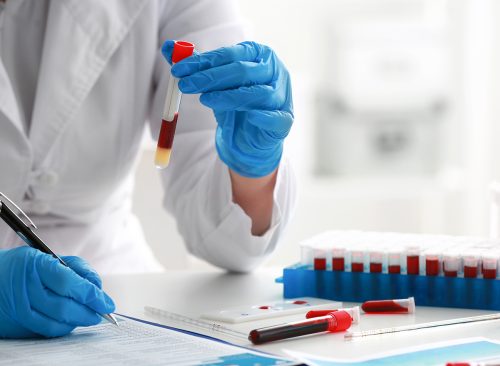
Giordano also suggests getting bloodwork done once or twice a year. “It gives you the information to let you know how you are doing,” he says.
RELATED: 16 Risk Factors That Could Lead to Dementia

“Maintaining a good social structure, participating in regular cognition, eliminating smoking and alcohol, and minimizing stress in your life are all things we need to do,” he says.

